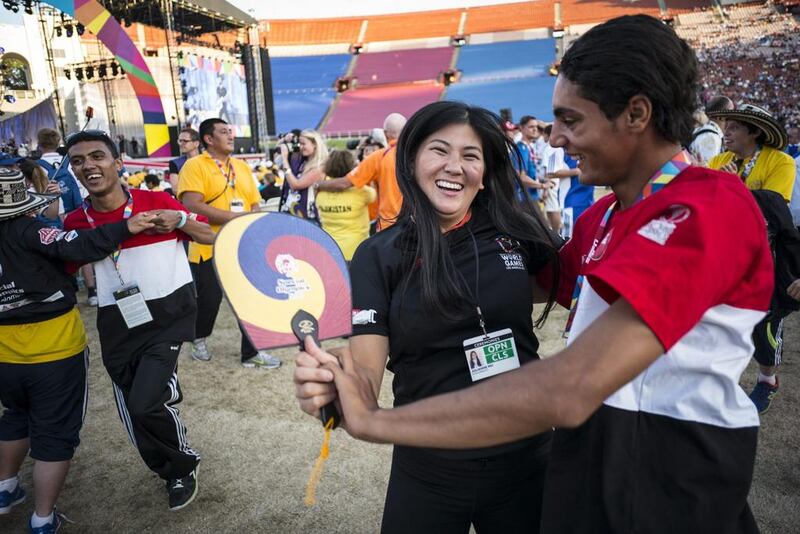Ahead of the recently completed Special Olympics World Games at Los Angeles, organisers accepted a gift of US$1 million (Dh3.67m) from an entity named LA84 Foundation.
The cryptic name reveals itself with a bit of analysis: “Los Angeles … 1984”.
As well as supporting the biggest Special Olympics yet, the LA84 donation also constitutes living proof that hosting the Summer or Winter Olympics does not have to be a crushing financial burden.
The Los Angeles Games of 1984 turned a profit, to the tune of $232m. The LA84 Foundation was set up with $93m of that surplus, and three decades later it still supports Olympic-style competition and training in southern California as a legacy of the 1984 Games.
The example of Los Angeles 1984 is particularly meaningful at present.
The International Olympic Committee (IOC) last weekend awarded the 2022 Winter Games to Beijing, which has no mountains nearby and will have to make snow to cover a patch of brown hills. But it was the less awful of the final two bid cities, the other being Almaty, Kazakhstan.
The process had seen five potential hosts � Oslo, Stockholm, Munich, Krakow and Switzerland � drop out of the running because of opposition by residents who feared the sort of massive expenditures ($51 billion for Sochi 2014; $40bn for Beijing 2008) recently associated with the Games.
Last week, the US city of Boston decided it no longer wanted to be a candidate for the 2024 Summer Games after grassroots opposition mobilised, citing potential cost overruns and forcing city officials to retreat.
Not long ago, cities avidly sought the Olympics, in part because of the example of Los Angeles.
The LA Games came at a pregnant moment. Munich 1972 had been scarred by terror killings; Montreal 1976 by incomplete infrastructure and $1.5bn (real money, back then) in cost overruns, a debt not paid off until 2006.
The Moscow 1980 Summer Games were boycotted by most of the West after the Russian invasion of Afghanistan, and by then the Olympic dream was about dead. It had been further damaged when Tehran, considered a front-runner for the 1984 Summer Games, pulled out after the overthrow of the Shah’s regime.
Los Angeles, then, was the last city standing for 1984, much to the chagrin of the IOC.
The IOC has always demanded government guarantees to keep the flow of cash coming if local organisers go bust.
Ahead of Los Angeles 1984, the IOC had no choice but to give the Games to LA, which had a revolutionary plan. The Games would be staged by a private group, LA84, which planned to fund the Olympics through television rights and corporate sponsors and to keep costs low, mostly by using existing stadiums and arenas.
The Los Angeles Coliseum, opened in 1923, was refurbished and was the site of opening and closing ceremonies, as well as the athletics competition, and right away a huge expense (Tokyo 2020 recently recoiled from the $2bn price tag for its main stadium) was avoided.
The LA Games were spread throughout the metropolitan area, with wrestling and handball in Orange County, archery, volleyball and rowing in suburban Long Beach, and shooting in San Bernardino County. The Athletes’ Village was the dormitories at the University of Southern California.
Only two venues were built for the Games, an aquatic centre and a velodrome. Total expenditures for Los Angeles 1984 were $546m; total income was $778m.
Going forward, if the IOC wants an Olympics in a country where voters matter, they must consider allowing naming rights, prominent branding and pursuing philanthropic groups for donations, as Los Angeles did so successfully.
If not, look for more Olympics going to cities where residents have no voice with which to say “no”.
poberjuerge@thenational.ae
Follow us on Twitter at @NatSportUAE





